Dr. Erica Lembke and her colleagues focus on data-based instruction, including use of technically adequate assessments (both screening and progress monitoring) to support instructional decision making for educators. With federally funded projects in academic areas like mathematics and writing, her lab also focuses on development of evidence-based interventions that can be utilized with students who have challenges in academic areas. Dr. Lembke has broad interests in academic areas, and her current projects also include a donor-funded reading tutoring program and an inclusive, residential, post-secondary program for college students with cognitive/developmental disabilities to attend Mizzou.

Project SCALE
Funded by The Department of Education
Principal Investigators: Leanne Ketterlin Geller (Southern Methodist University), Erica Lembke (University of Missouri), Sarah Powell (University of Texas at Austin)
Project Coordinator: Emily Newland
Overview: SCALE Fractions is a research study of Fraction Face-Off (FFO), a What Works Clearinghouse approved intervention program designed by Dr. Lynn Fuchs at Vanderbilt University, for small groups of students in Grades 4-8 who are experiencing math difficulty. FFO includes 36 sessions divided into a 12-week implementation schedule, with 3 sessions per week, each lasting about 30-35 minutes. The intervention uses components of explicit instruction to address two types of understanding about fractions: the part-whole interpretation and the measurement interpretation of fractions. Each FFO session consists of 5 activities: (1) Training, (2) The Relay, (3) Fraction Sprint, (4) Individual Contest, and (5) Scoreboard.
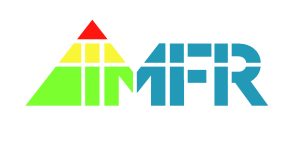
IMFR Project
Project Overview
The Integrated MTSS Fidelity Rubric (IMFR), is a tool designed to help practitioners and researchers monitor the implementation of integrated MTSS in elementary schools. The IMFR is administered using an interview format. A trained IMFR Data Collector facilitates a scripted conversation with a school team focusing on the four primary domains of effective integrated MTSS implementation: Instruction and Intervention, Assessment, Data-Based Decision Making, and Infrastructure. Each of the four domains is then subdivided into various critical constructs of that domain. After the interview, the Data Collector scores the school’s responses using a Scoring Worksheet which provides explicit criteria aligned to the questions asked during the administration. For each construct discussed, the school is given a score of “Beginning”, “Exploring”, “Aligning”, “Integrating” or “Sustaining”. Finally, a summary of the scores, as well as suggested next steps and resources, is provided to the school in the form of a Score Report. The IMFR study team then follows up the administrations with activities to analyze patterns across data sets and evaluate reliability of the tool. For more information about the IMFR and the related research network, please visit the I-MTSS Research Network homepage at https://mtss.org/.
Project Funding and Leadership
The IMFR is a five year, four-million-dollar grant funded by the Department of Education’s Institute of Education Sciences (IES). The project is being run in partnership between American Institutes for Reseach (AIR) and the University of Missouri (MU). The principal investigator of the project is Dr. Allison Gandhi (AIR). The Co-PIs are Dr. Erica Lembke (MU) and Dr. Chris Riley-Tillman (MU). The project coordinators are Dr. Jennifer Pierce (AIR) and Heather Smith (MU). The project began in July 2020 and will conclude in June 2024, with the potential for additional projects furthering this important work around implementing an integrated MTSS framework.
LIME
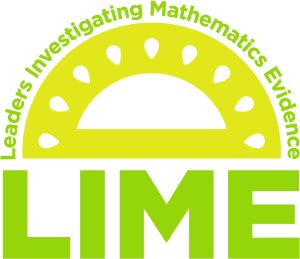
Overview
Leaders Investigating Mathematics Evidence (LIME) seeks to develop 12 scholars into faculty who are prepared to aid the learning of students who experience learning disabilities in mathematics. These 12 scholars will study at their respective IHEs—The University of Texas at Austin, Southern Methodist University, and the University of Missouri. Over the course of four years, LIME Scholars will increase their knowledge related to 1) the academy (i.e., professoriate), 2) special education instruction and assessment, and 3) mathematics content and pedagogy. At the conclusion of four years of study, LIME Scholars will earn their Ph.D.s and hope to accept faculty positions where they can lead pre-service and in-service professional development and work directly with students to improve mathematical understandings by students with disabilities.
Funder
The U.S. Department of Education Office of Special Education Programs awarded $3.6 million for this five-year grant. The funds will be shared between the initially awarded IHE, University of Texas at Austin, and Southern Methodist University and University of Missouri.
Links
Twitter- #LIMEphd
Principal Investigators
Dr. Sarah Powell at the University of Texas at Austin
Dr. Leanne Ketterlin Geller at Southern Methodist University
Dr. Erica Lembke at the University of Missouri
Partner Faculty
Dr. Christian Doabler at the University of Texas at Austin
Dr. Annie Wilhelm at Southern Methodist University
Dr. Jessica Rodriguez and Dr. Delinda van Garderen at the University of Missouri
Dr. Stephanie Hopkins, co-project coordinator (MU), Dr. Le Tran, co-project coordinator (UT)
STAIR
Overview
Supporting Teaching of Algebra: Individual Readiness (STAIR 2.0) is a pandemic relief project that works to accelerate pandemic recovery in Special Education. The project focuses on math and the educators who provide math support to students with disabilities in Grades 6, 7, and 8. We anticipate that STAIR 2.0 will result in improvements to teachers’ preparation and implementation of data-based individualization for middle school mathematics students. In this project, data-based individualization (DBI) serves as the overarching approach for addressing individual student’s needs when learning algebra while experiencing a learning disability in mathematics Implementing DBI will support student achievement and lead to measurable gains in students’ algebraic reasoning. The post-pandemic, societal need for this research is evidenced by local, state, and national testing measures in mathematics. STAIR 2.0 addresses Special Education Teachers’ needs by 1) providing DBI PD to increase data-based decision making, 2) increasing evidence-based intervention in math classrooms, and 3) utilizing assessment tools to make informed decisions. In Year 1 of the project, teachers are randomly assigned to receive intense coaching or light coaching on the use of DBI when teaching students with specific learning disabilities in mathematics. In Year 2, teachers will be grouped based on responsiveness to their coaching in Year 1. All teachers will receive continued coaching in the form of Core PD; most teachers will additionally receive Tailored PD; non-responders will be randomly assigned further PD (peer mentoring or booster sessions).
Links/ social media
Project STAIR Youtube Videos (https://www.youtube.com/@projectstair9458)
Funder
U.S. Department of Education Office of Special Education Programs (Tech. Assist. and Dissem. to Improve Services and Results for Children with Disabilities)
Principal Investigators
Dr. Erica Lembke at the University of Missouri
Dr. Leanne Ketterlin Geller at Southern Methodist University
Dr. Sarah Powell at the University of Texas at Austin
Support Staff
Dr. Stephanie Hopkins, project coordinator
PAWS
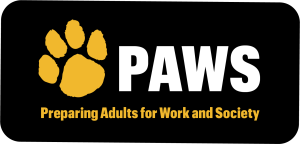
Overview
PAWS (Preparing Adults for Work and Society) is an Inclusive Post-Secondary Certificate Program for young adults with Intellectual or Developmental Disabilities. PAWS Students participate in Skill Focused classes and Mizzou Undergraduate level classes, focusing around meeting their interests and needs, as well as seeking out vocational opportunities that support them in moving towards their long-term professional goals. PAWS Students will collaborate with their advisors, faculty, tutors and peers during their four semesters as a Mizzou student. While living on campus in a Mizzou residential hall and taking courses alongside their peers, PAWS Students will have the opportunity to have authentic college experiences. Our hope is to inspire the Mizzou community to continue to grow as an inclusive and welcoming institution that values diversity as a strength.
The PI of this project is Dr. Erica Lembke, and the PAWS Program Director is Maggie Center.
For updates and more information about this program, visit https://cehd.missouri.edu/special-education/projects-centers/paws
Aslin Early Reading Initiative
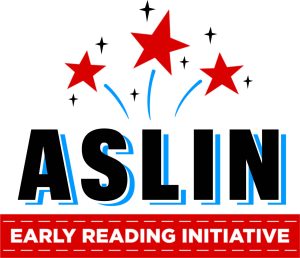
Overview: The Aslin Early Reading Initiative was launched in October 2022 thanks to a generous donation from University of Missouri alumni, Mick and Kathy Aslin. The goal of the Initiative is to assist our youngest learners who are performing below grade level in reading with evidence-based literacy instruction.
Small group tutoring is provided by University of Missouri education majors in Columbia Public Schools. Utilizing the research proven PRESS intervention and other tools, instruction is targeted and individualized using practical strategies, using relevant student data in planning and decision making.
Project Director: Dr. Erica Lembke
Project Coordinator: Dana Goldman, M.S. Ed
The Early Writing Project
The Early Writing Project is a collaborative effort among researchers at the University of Minnesota, the University of Missouri, and school districts and teachers in both states. We provide research-based tools (assessments, intervention materials, and decision-making guides), learning modules (face-to-face workshops), and coaching (virtual and on-site) to support teachers’ use of Data-Based Instruction for students with intensive early writing needs.
For updates and more information about this program, visit: https://earlywritingproject.org.